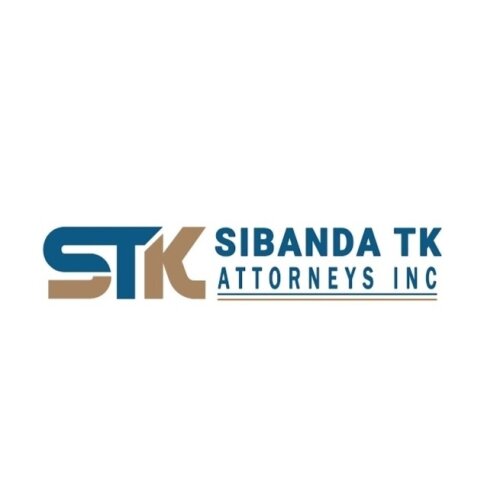Best Adoption Lawyers in Kwamhlanga
Share your needs with us, get contacted by law firms.
Free. Takes 2 min.
Free Guide to Hiring a Family Lawyer
List of the best lawyers in Kwamhlanga, South Africa
About Adoption Law in Kwamhlanga, South Africa
Adoption in Kwamhlanga, South Africa, is regulated under the Children’s Act 38 of 2005, which applies nationally. The purpose of adoption is to provide a permanent, legal relationship between the adopted child and the adoptive parents, who assume all parental rights and responsibilities. In Kwamhlanga, as in the rest of South Africa, adoption is subject to strict legal and social procedures to ensure the best interests of the child. Both South Africans and foreigners may adopt in South Africa, but all prospective adoptive parents must comply with the legal requirements established by the Department of Social Development (DSD) and accredited adoption agencies.
Why You May Need a Lawyer
Adoption can be a complex legal process involving paperwork, court appearances, and compliance with legislative requirements. You may need a lawyer in situations such as:
- Understanding eligibility criteria for adoption
- Identifying and working with accredited adoption agencies
- Assisting with the consent process, especially where parental consent is refused or unknown
- Representing you in court proceedings
- Ensuring father’s rights are recognized
- Handling cases involving step-parent adoption, relative adoption, or intercountry adoption
- Dealing with contested adoptions or appeals
- Protecting the rights and best interests of the child at all stages
A lawyer can simplify the process, help avoid delays or mistakes, and facilitate a smoother transition for all parties involved.
Local Laws Overview
In Kwamhlanga, as part of Mpumalanga Province, the key aspects of local adoption laws are guided by the national Children’s Act. Important highlights include:
- Eligibility: Prospective parents must be at least 18 years old, fit and proper to be entrusted with a child, and capable of providing a suitable home.
- Children eligible for adoption: Only children below 18 years, declared adoptable, can be adopted.
- Consent: The child’s biological parents or legal guardians must usually give consent, unless they cannot be found or have abandoned the child.
- Best interests of the child: The core principle of adoption law is the best interests of the child, meaning every decision must put the child’s needs and welfare first.
- Accredited Agencies: Only accredited child protection organizations or social workers are permitted to manage the adoption process.
- Adoption orders: A court must grant an adoption order for it to be legally binding.
- Post-adoption: Adoptive parents assume full parental rights and responsibilities; the relationship with biological parents is legally terminated unless a specific “open adoption” is agreed.
Kwamhlanga’s local courts and social development offices play an essential role in facilitating and overseeing the adoption process in the area.
Frequently Asked Questions
What is the first step to start the adoption process in Kwamhlanga?
The first step is to contact an accredited adoption agency or social worker in your area. They will provide an orientation and assess your eligibility.
Can single people or unmarried couples adopt in Kwamhlanga?
Yes, single people, unmarried couples, and married couples can all apply to adopt, provided they meet the legal criteria and pass all required screenings.
How long does the adoption process typically take?
Adoptions can take several months to more than a year, depending on background checks, court schedules, and the individual circumstances of the case.
Is it possible to adopt a stepchild or a relative?
Yes, step-parent and relative adoptions are permitted but require the consent of all parties with parental rights, as well as a legal assessment of the child's best interests.
What documents are required for adoption?
You will need identity documents, marriage or divorce certificates (if applicable), medical clearance, police clearance, and financial statements, among others. The agency or social worker will give a full list.
Can foreigners adopt in Kwamhlanga?
Non-citizens can adopt, but the process is more complex and regulated through intercountry adoption laws and international agreements, with strict eligibility checks.
Will the adopted child learn about their biological family?
Depending on the type of adoption (open or closed), there may be opportunities for the child to have knowledge of, or contact with, their biological family, but the law primarily severs the legal relationship.
What is the role of the court in adoption?
Only a court can grant a legal adoption order after verifying that all procedures have been followed and that adoption is in the child’s best interests.
What happens if a parent withholds consent?
If a biological parent refuses to consent without valid reason, the court may overrule this if it is convinced the adoption serves the child’s best interests.
How much does adoption cost?
Costs vary depending on agency fees, legal fees, and court costs. Some agencies may offer free services or sliding scale fees, especially for local adoptions. Legal assistance will incur additional charges.
Additional Resources
The following organizations and governmental bodies can provide valuable information and assistance with adoption in Kwamhlanga and South Africa:
- Department of Social Development (DSD) - Responsible for regulating adoptions and providing directory of accredited agencies.
- Child Welfare South Africa - Provides adoption and foster care services.
- ACVV (Afrikaanse Christelike Vrouevereniging) - Offers adoption support and services in some regions.
- Legal Aid South Africa - Offers free or affordable legal services for qualifying individuals.
- South African Police Service (SAPS) - For obtaining police clearance certificates required for adoption.
- Local magistrate’s courts and family courts - Handle legal aspects of the adoption process.
- Registered social workers specializing in adoption - Can provide guidance and assessment services.
Next Steps
If you are considering adoption in Kwamhlanga, South Africa, follow these steps:
- Educate yourself about the adoption process and requirements by consulting reputable sources or social workers.
- Identify and contact an accredited adoption agency or local social worker for an initial orientation session.
- Gather all necessary documentation, including proof of identity, residence, and financial stability.
- Undergo background checks, medical assessments, and home studies as required by law.
- Consider consulting a legal professional with adoption experience to guide you through legal procedures and ensure your application is properly prepared.
- Attend all court hearings and cooperate with social workers, legal counsel, and the court to finalize the adoption.
- Utilize support resources for new adoptive parents, such as counseling or support groups, if needed.
Taking these steps and seeking professional legal advice will help ensure your adoption journey in Kwamhlanga is safe, legal, and in the best interest of the child.
Lawzana helps you find the best lawyers and law firms in Kwamhlanga through a curated and pre-screened list of qualified legal professionals. Our platform offers rankings and detailed profiles of attorneys and law firms, allowing you to compare based on practice areas, including Adoption, experience, and client feedback.
Each profile includes a description of the firm's areas of practice, client reviews, team members and partners, year of establishment, spoken languages, office locations, contact information, social media presence, and any published articles or resources. Most firms on our platform speak English and are experienced in both local and international legal matters.
Get a quote from top-rated law firms in Kwamhlanga, South Africa — quickly, securely, and without unnecessary hassle.
Disclaimer:
The information provided on this page is for general informational purposes only and does not constitute legal advice. While we strive to ensure the accuracy and relevance of the content, legal information may change over time, and interpretations of the law can vary. You should always consult with a qualified legal professional for advice specific to your situation.
We disclaim all liability for actions taken or not taken based on the content of this page. If you believe any information is incorrect or outdated, please contact us, and we will review and update it where appropriate.









